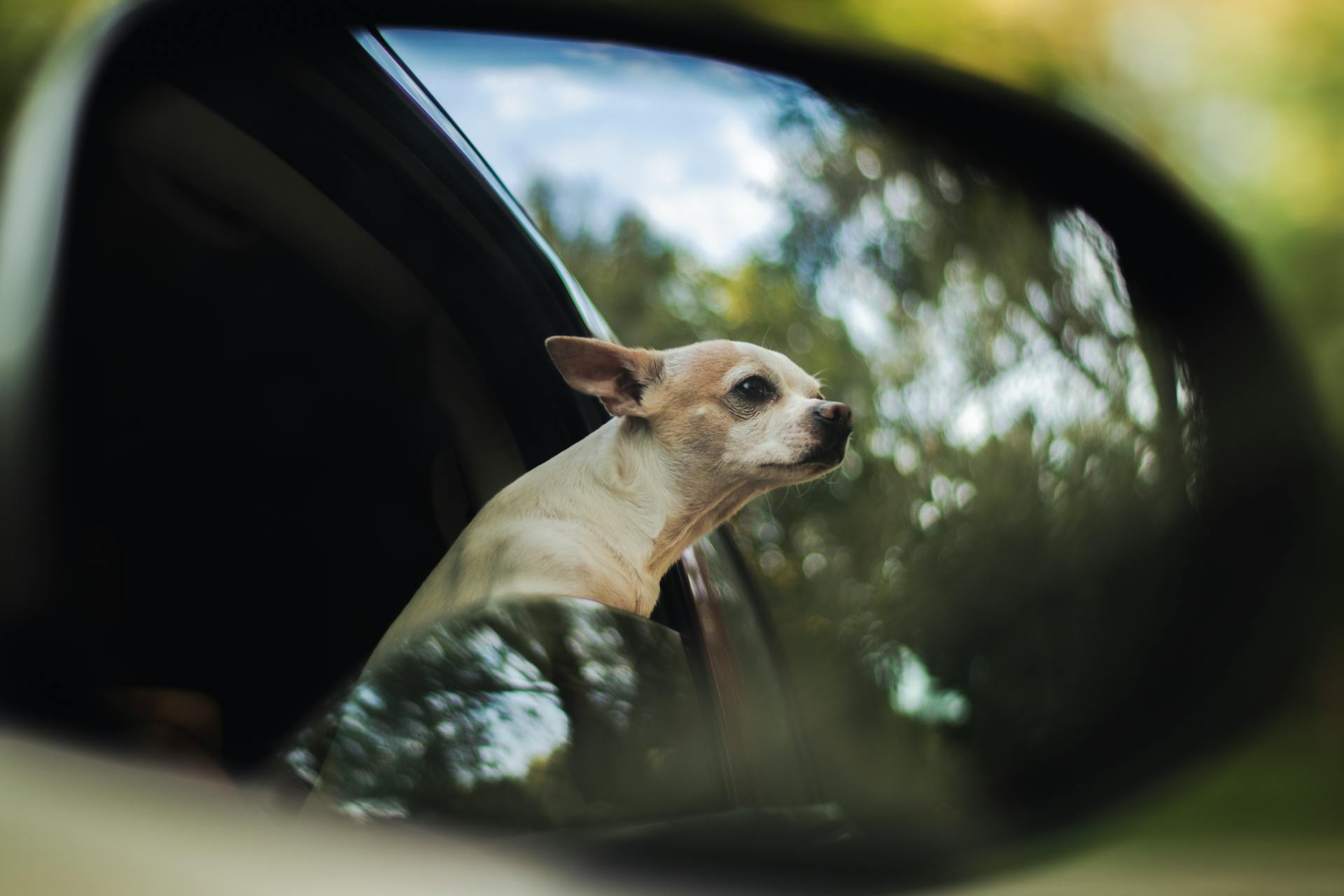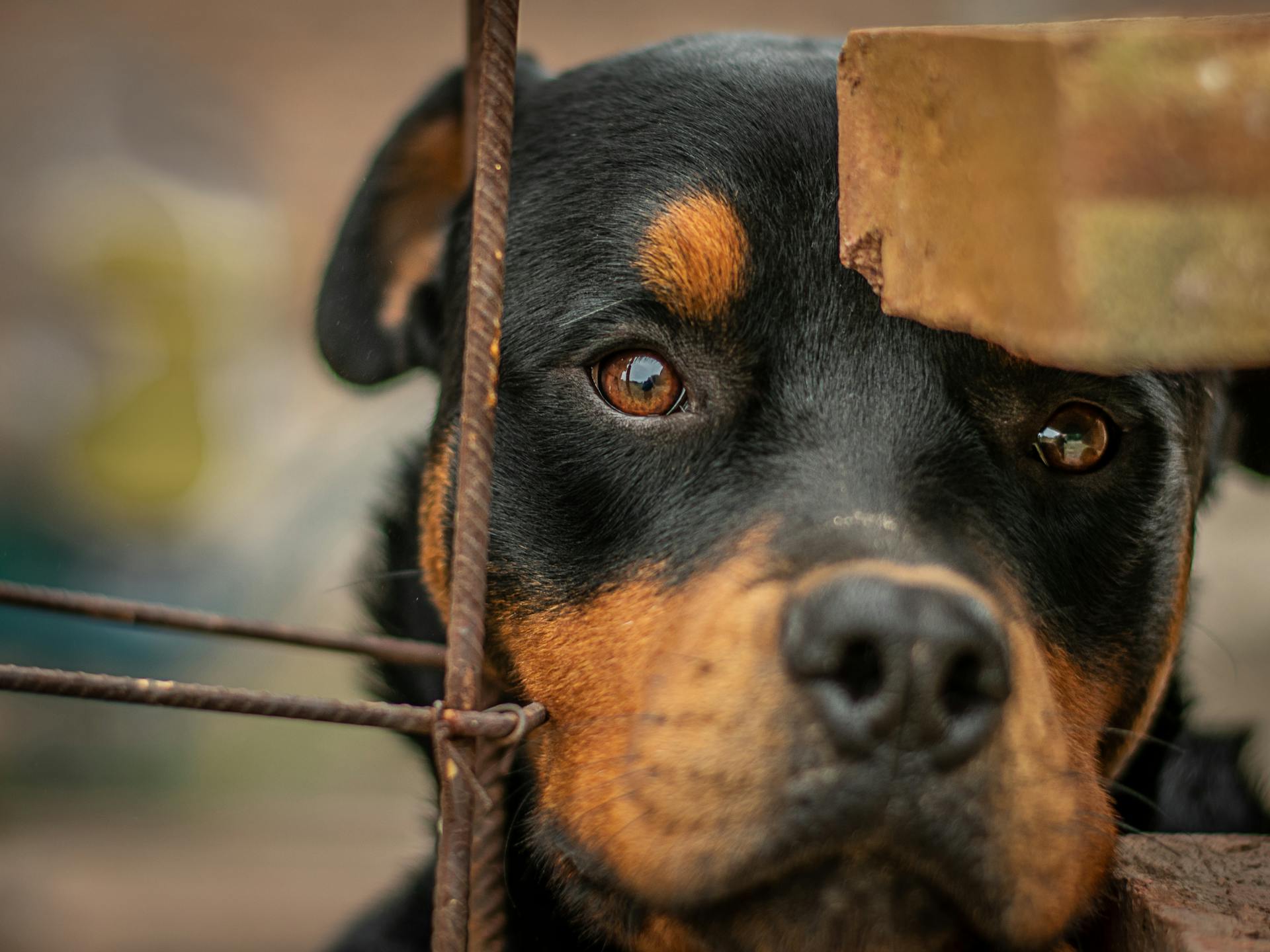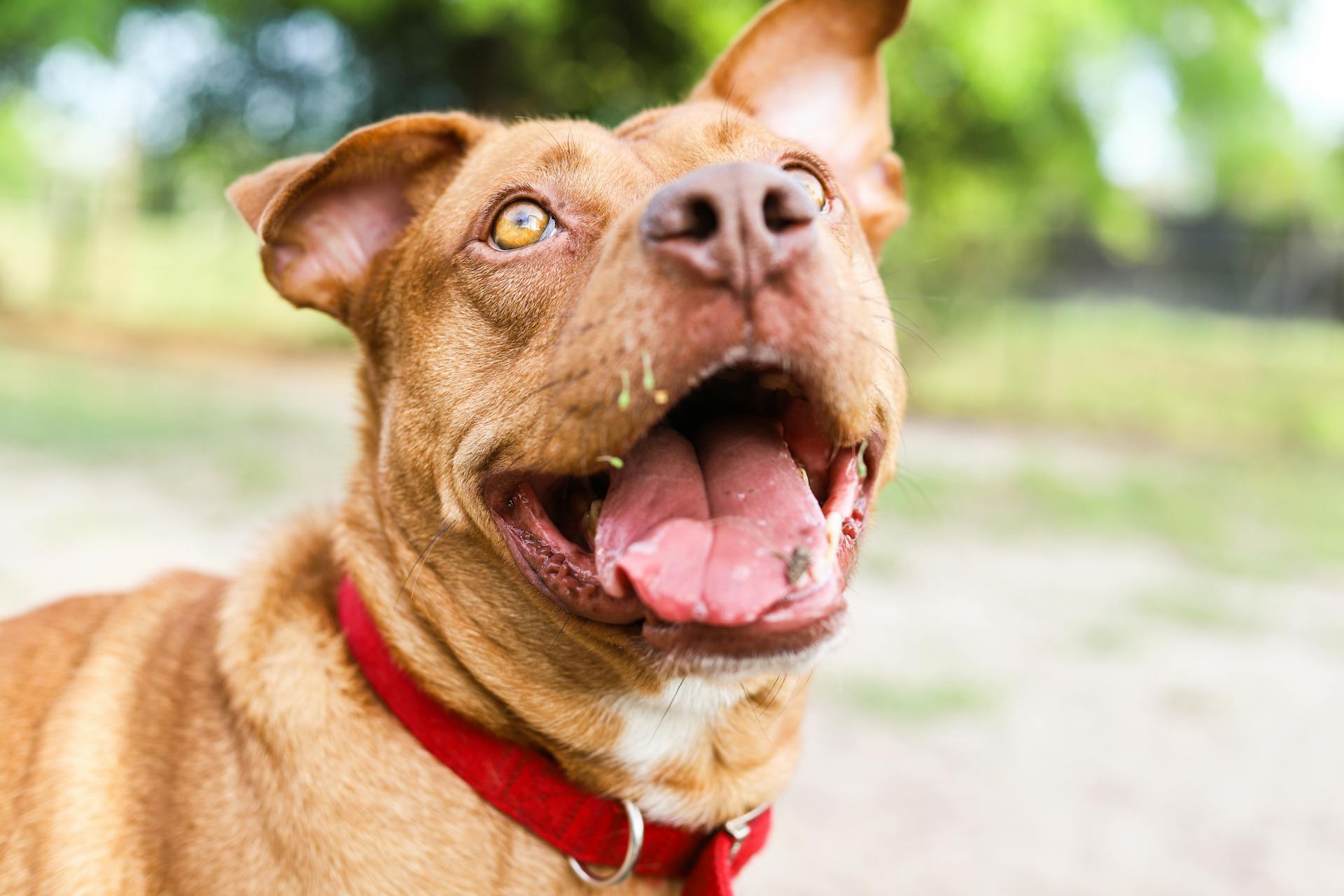
In the United States, over 1,000 cities and towns have enacted Breed-Specific Legislation (BSL) that restricts or bans certain dog breeds.
BSL is a local law that targets specific breeds, such as Pit Bulls, Rottweilers, and Chows, based on their perceived aggression.
In 1987, Denver, Colorado became the first city to enact BSL, banning Pit Bulls and other breeds deemed "vicious."
Research has shown that BSL is often ineffective in reducing dog bites or improving public safety.
Banned Dog Breeds in the USA
Delta Airlines bans a wide range of dog breeds from flying, including the Affenpinscher, Lhasa Apso, and American Bully.
Some breeds banned by Delta Airlines include the American Bully, American Staffordshire Terrier, and Pit Bull. Bulldogs, Pugs, and Boxers are also on the list, with all breeds of these types prohibited.
You'll notice that American Airlines has a similar list, but with some differences. For example, the Cane Corso and Dogue De Bordeaux are banned by American Airlines, but not by Delta.
If this caught your attention, see: Hungarian Dog Types
If you're planning to fly with your dog, it's essential to check the airline's policies first. Both Delta and American Airlines have lists of restricted breeds, and they may change over time.
Here's a breakdown of some of the breeds banned by both airlines:
- Affenpinscher
- American Bully (all breeds)
- American Staffordshire Terrier
- Bulldog (all breeds)
- Lhasa Apso
- Pit Bull
- Pug (all breeds)
- Boxer (all breeds)
Keep in mind that this is not a comprehensive list, and you should always check with the airline directly before booking your tickets.
Impact of Breed-Specific Laws
Breed-specific laws, like BDL, have been implemented in an attempt to make communities safer, but the data shows they don't work.
Multiple cities in the US that enacted BDL in the 1980s and 1990s have decades of data showing it doesn't reduce dog bites or make communities safer.
The American Veterinary Medical Association (AVMA) reviewed 40 years of dog bite studies and found no evidence that breed-specific bans reduce the rate or severity of bite injuries.
The Public Health Department of Aragon, Spain, studied dog bites before and after BDL and found it was not effective in protecting people from dog bites in a significant manner.
Evaluating Inherently Dangerous Breeds
Some research suggests that certain breeds are more likely to be involved in fatal dog attacks. A 2000 study published in the Journal of the American Veterinary Medical Association found that in over half of fatal dog attacks, the dog involved was a "pit bull-type" or a Rottweiler.
However, critics argue that breed is not the sole determining factor in a dog's behavior. They point out that individual dogs, regardless of breed, are influenced by their breeding, health, socialization, and environment.
It's not always easy to determine a dog's breed, and the term "pit bull" can be particularly ambiguous. There isn't a specific definition for which dogs are considered "pit bulls", which can lead to inconsistent enforcement of breed-specific laws.
A study by the Center for Insurance Policy and Research notes that breed identification can be subjective and may result in "pit bull" becoming a catch-all category for any dog that resembles a bulldog or Bull Terrier.
Expand your knowledge: Breeds of Dogs That Start with S
Some people argue that certain breeds have been specifically bred to have more dangerous physical and behavioral characteristics. For example, breeds like German Shepherds, Dobermans, and Rottweilers have often been trained and used as guard dogs, police dogs, and military dogs.
Public perception of a breed can change over time. For example, before they developed a reputation for violence, pit bulls had a more lovable image. Pete the Pup, who appeared in the Our Gang movies in the 1930s, was a pit bull.
Here is a list of some breeds that have been associated with fatal dog attacks, based on the 2000 study mentioned earlier:
- Pit bull-type
- Rottweiler
It's worth noting that this list is not exhaustive, and many other breeds have been involved in fatal dog attacks as well.
How BSL Handles Mixed-Breed
BSL often struggles to define what constitutes a mixed-breed dog. Most dogs aren't purebred, so BSL must address this issue.
In some cities, mixed-breed dogs are covered by the ban if they display the majority of physical traits of a banned breed. This can be a problem, as it's not an accurate way to identify individual mixed-breed dogs as members of banned breeds.
A different take: Most Common Mixed Breed Dogs
Distinguishing characteristics like those described by the American Kennel Club or the United Kennel Club can also be used to determine if a mixed-breed dog is covered by the ban. However, this approach can be subjective and open to interpretation.
Council Bluffs is a city that uses this approach to determine if a mixed-breed dog is covered by the ban.
Readers also liked: Pitbull Breed Ban
Does BDL Make Communities Safer?
Breed-discriminatory legislation, or BDL, has been touted as a solution to making communities safer, but the evidence says otherwise. Multiple peer-reviewed studies have found that BDL does not improve public safety.
The American Veterinary Medical Association did a thorough review of dog bite studies in 2014, looking at 40 years of data from 10 countries. They concluded there's no evidence that breed-specific bans reduce the rate or severity of bite injuries.
Cities in the US that enacted BDL in the 1980s and 1990s thought it would address dog bites, but decades of data show it didn't make a difference.
Other Organizations Oppose BDL
Animal groups aren't the only ones opposing BDL. The Centers for Disease Control, American Bar Association, National Animal Control Association, and the Obama Administration have all spoken out against BDL.
The American Bar Association passed a resolution in 2012 urging local governments to adopt comprehensive breed-neutral laws that focus on the behavior of dog owners and dogs, rather than specific breeds.
Other organizations that oppose BDL include the National Animal Control Association and the Obama Administration, who have also joined the chorus of opposition.
You can find a longer list of organizations that oppose BDL on the Animal Farm Foundation's fact sheet, "Organizations That Do Not Endorse Breed Specific Legislation (BSL)".
Breed-Specific Laws and Regulations
Breed-specific laws have been a topic of debate for decades, with some municipalities banning certain breeds altogether. For example, Council Bluffs, Iowa, prohibits residents from owning American Pit Bull Terriers, while Des Moines, Iowa, allows pit bull owners to keep their dogs but imposes significant insurance requirements.
Some common examples of breed-specific rules include outright bans, additional insurance requirements, and mandatory sterilization. Kansas City, Missouri, requires sterilization of certain dog breeds, but owners can exempt their pit bulls if a veterinarian confirms that the procedure risks seriously harming the animal.
Courts have generally upheld breed-specific laws, with the Ohio and Kansas state supreme courts upholding ordinances regulating the ownership of pit bulls. However, opponents have challenged these laws on grounds that they are unconstitutionally vague and arbitrary.
In recent years, governments have become more skeptical of breed-specific laws, with many municipalities repealing their breed-specific rules. For example, in 2020, voters in Denver, Colorado, passed a ballot measure overturning the city's 31-year-old ban on pit bulls.
Here are some examples of breed-specific rules:
It's worth noting that breed-specific laws often rely on assumptions about certain breeds being inherently more aggressive or dangerous. However, critics argue that each dog should be evaluated individually, taking into account its breeding, health, socialization, and environment.
Effectiveness and Controversy
The effectiveness of breed-specific legislation (BSL) in the USA is a topic of ongoing debate. Many argue that BSL is an ineffective way to reduce dog bites and attacks.
Several studies have shown that BSL does not lead to a significant decrease in dog bites. In fact, a study by the American Temperament Test Society found that the breeds targeted by BSL are no more aggressive than other breeds.
Some proponents of BSL claim that it helps to reduce the number of dog attacks, but the evidence supporting this claim is limited. In contrast, many experts argue that BSL is a misguided approach that focuses on the wrong problem.
A key issue with BSL is that it can lead to the unnecessary euthanization of dogs that are deemed "dangerous" due to their breed. This is a tragic consequence of a flawed policy.
List of Banned Breeds
Delta Airlines has a list of banned dog breeds that you should be aware of before booking your tickets. Some of the breeds banned by Delta include the American bully, Lhasa Apso, and Pekingese.
Delta also bans Mastiffs, American pit bull terriers, and Pit bulls. Bulldogs, Pugs, and Boxers are also not allowed on Delta flights, regardless of breed. Brussels Griffons and Staffybull terriers are also on the banned list.
American Airlines has a similar list, but with some differences. They also ban Affenpinschers, American Staffordshire terriers, and Boston terriers. Boxers, Bulldogs, and Chow Chows are also not allowed on American Airlines flights.
Here is a list of dog breeds banned by Delta and American Airlines:
- Affenpinscher
- American bully (all breeds)
- American pit bull terrier
- American Staffordshire terrier
- Boston terrier
- Bulldog (all breeds)
- Boxer (all breeds)
- Brussels Griffon (Petit Brabancon)
- Chow chow
- Lhasa Apso
- Mastiff (all breeds)
- Pekingese
- Pit bull
- Pug (all breeds)
- Presa Canario (not listed by Delta)
- Shar Pei
- Shih Tzu
- Staffordshire bull terrier
- Tibetan spaniel
Keep in mind that this is not a comprehensive list of restricted breeds. Make sure to call the airline before booking your tickets to confirm your dog can fly.
Frequently Asked Questions
What breed of dog is uninsurable?
Some dog breeds, such as Doberman Pinschers, pit bulls, and Rottweilers, may be uninsurable due to breed restrictions. Consider shopping around for insurance companies with no breed restrictions or purchasing additional liability coverage.
Sources
- https://www.nolo.com/legal-encyclopedia/free-books/dog-book/chapter12-4.html
- https://www.forallanimals.org/pit-bull-terriers-breed-discriminatory-legislation-faqs/
- https://en.wikipedia.org/wiki/Breed-specific_legislation
- https://citizenshipper.com/blog/dog-breeds-restricted-from-flying/
- https://listverse.com/2011/08/23/top-10-banned-dog-breeds/
Featured Images: pexels.com


